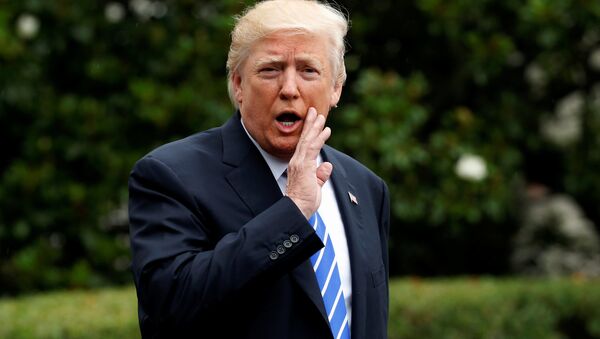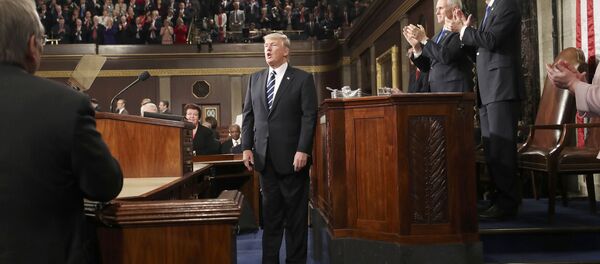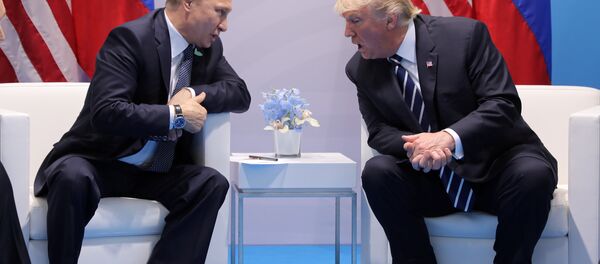The law stipulates sanctions against Russia's defense, intelligence, mining, shipping and railway industries and restricts dealings with Russian banks and energy companies. The law also limits the US president's ability to ease any sanctions on Moscow by requiring Congress's approval to lift any restrictions.
The new legislation punishes Moscow for its alleged meddling in the 2016 US presidential election, its alleged involvement in the situation in Ukraine, as well as its military activities in Syria. Russia has repeatedly denied the allegations.
On Wednesday, the White House also issued a statement in which Trump described the newly signed law as "seriously flawed" since "it encroaches on the executive branch’s authority to negotiate." The president also expressed concerns that the bill will disadvantage American companies and hurt the interests of Washington’s allies in Europe.
"The concerns expressed in the president’s signing statement are hardly surprising, though misplaced," McCain said Wednesday.
A day after he signed the law, Trump said that relations between Washington and Moscow are at "an all-time and very dangerous low" and cast the blame on Congress.
"Our relationship with Russia is at an all-time & very dangerous low. You can thank Congress, the same people that can't even give us HCare!" Trump said in a Twitter statement on Thursday.
Our relationship with Russia is at an all-time & very dangerous low. You can thank Congress, the same people that can't even give us HCare!
— Donald J. Trump (@realDonaldTrump) 3 августа 2017 г.
There is a certain political message behind Trump’s criticism of the law he signed, according to Vyacheslav Smirnov, director of the Scientific and Research Institute for Political Sociology.
"This is a signal to the American public and an attempt to explain why Trump signed the bill. But it also says that maybe he will not enact some of its provisions citing that they contradict the Constitution. These sanctions are only partially directed against Russia and the other countries. To a large extent, this bill demonstrates the political struggle within the US establishment, the struggle of the Democrats and the Republicans against Trump and his weak team. As a result, this hurts US-Russia ties. US lawmakers encroach on the executive power and they usually serve the interests of media, public opinion and lobbyists," Smirnov told Radio Sputnik.
"Until Germany has a new chancellor its foreign policy will stay the same. But when the German foreign minister makes kind of a pro-Russian statement [on sanctions] this means he has differences with the chancellor. When Austrian politicians express concerns over sanctions this also indicates an internal conflict. In European countries, one part of the establishment is pro-American. In order to come to power, the other part has to be anti-American or pro-Russian," Smirnov pointed out.




